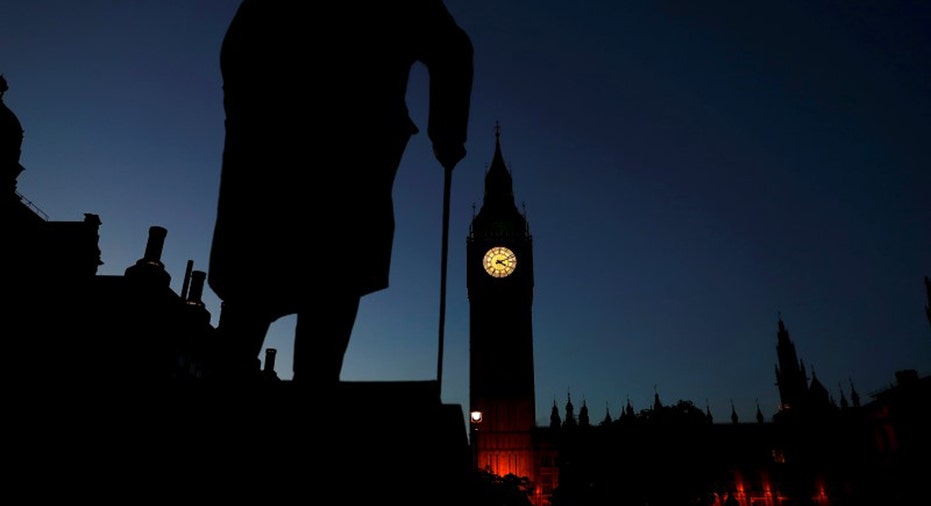After Brexit Carnage, Should You Rejigger Your Investment Portfolio?

The unexpected happened Thursday night when the United Kingdom, in a historic outcome, voted to end its more than four decades of membership in the European Union. The decision caught Wall Street by surprise, sending global investors for a wild ride during Friday’s trading session as the markets looked to re-price risk.
With portfolios ravaged, investors might be tempted to ditch their positions in the market, liquidating their assets to cash. But market strategists say the best game plan depends on time horizon, risk appetite, and how much stomach-churning volatility an investor can withstand.
There are only two questions Paul Christopher’s clients have on a day like this: What does Brexit fundamentally mean for the rest of Europe, and will it have spillover effect to the U.S.?
“We’re getting used to the shock of the vote and in the wake of the surprise. But does it change anything fundamentally about the market? No,” said Christopher, head global market strategist at Wells Fargo (NYSE:WFC) Investment Institute.
Despite the unexpected outcome of the U.K.’s vote, Christopher said there are no significant changes to the recommendations he made going into the event, which moved clients to a cautious approach, expecting gradual improvement in the economy going through the remainder of the year. He recommends being slightly overweight U.S. stocks and bonds, taking profits off bond positioning and reallocating that cash to sectors positioned for U.S. growth. Among those he likes: industrials, consumer discretionary, information technology, and health care.
"This is not a Lehman moment that will lead to a global crisis or recession, but when the global economy is fragile, it causes us to be defensive in portfolio positioning."
“We don’t expect [Brexit] to amount to a global economic shock, but one that is limited to the U.K.,” he explained. “There are still opportunities for companies to earn, as we expected, for the rest of the year. As a result, this looks like a good rebalancing opportunity. A lot of our clients woke up with bond portfolios ahead and stocks a bit behind. It’s a good chance to reallocate in an environment where economic fundamentals still remain.”
Ed Campbell, managing director and portfolio manager at QMA, a multi-asset class investment manager owned by Prudential Financial (NYSE:PRU), agreed that a global recession is unlikely but risks have risen thanks to the macro shock Brexit delivered to the market.
He said a big factor in determining the size of the fallout globally will be the response that comes from policymakers in the coming days and weeks. He expects the Bank of England to cut interest rates and re-start a quantitative-easing program, more easing from the Bank of Japan and the European Central Bank – both of which have already cut rates into negative territory -- and a freeze on rate hikes from the Federal Reserve, likely through the rest of the year.
“Brexit results make us more defensive on the margin,” he said. “This is not a Lehman moment that will lead to a global crisis or recession, but when the global economy is fragile, it causes us to be defensive in portfolio positioning.”
Campbell cautioned investors who may want to rush to the exit doors, saying those with money in the market should be careful not to panic. Rather, he advised waiting for further commentary from G7 leaders and central bankers about firm plans for the path of monetary policy aimed at keeping adequate amounts of liquidity in the market during a particularly uncertain time.
Still, for investors who can’t keep their fingers off the sell buttons, Christopher had some ideas.
“It’s going to be expensive to add back a dollar-sterling or dollar-euro hedge, don’t look to hedge currencies, but think about [investing in] quality names, well-run companies, those that have made it through shocks like this before and will go down the least and rebound the most,” he said.
To his point, the British pound dropped nearly 8% in Friday trading after hitting its lowest level since 1985 overnight. Meanwhile, the euro helped to further strengthen the U.S. dollar as it slid 2.29% against the greenback.
Still, Chris Gaffney, president of EverBank World Markets, said he recommends reducing exposure to Europe – regardless of a long or short-term time horizon.
“If you haven’t done it yet, get in there and pare your exposure to the European markets, even at this level,” he said. “There are more uncertainty and headwinds to come in the EU. Drawdown your exposure to European equities and increase exposure to move into some of the safe havens.”
He recommends gold, which saw significant gains of more than 4% in Friday’s session, U.S. 10-year Treasury bonds, which have seen yields plunge and prices rise as traders seek the safety of government debt.
“That a good place to move right now, and I think after this initial U.S. selloff, U.S. equities will be cheaper,” he said.



















